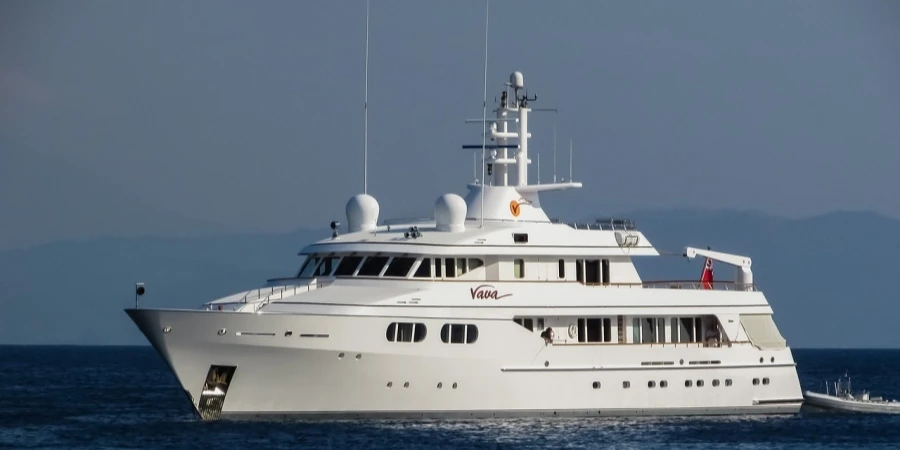Table of Contents
● Introduction
● Market overview
● Key technology and design innovations
● Top-selling models driving market trends
● Conclusion
Introduction
The worldwide yacht industry is set to experience expansion due to advancements in technology and changes in consumer tastes. Evolving systems and sustainable technologies are improving yachts’ functionality and eco-friendliness to meet the growing desire for luxury and efficiency. New materials and hybrid propulsion systems are increasingly common as they cater to the rising demand. Key design breakthroughs prioritize incorporating technologies and sustainable methods. Top manufacturers are spearheading trends by introducing models that cater to the changing preferences of yacht lovers and professionals. This guide talks about the latest dynamics of the yachting industry ahead of 2024.
Market overview
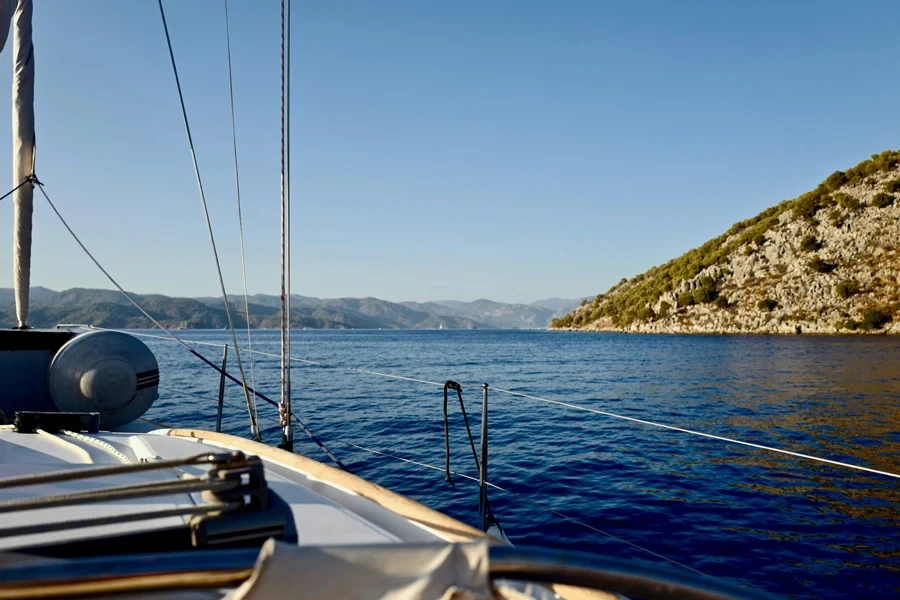
The yacht market worldwide is expanding due to higher disposable incomes and a growing desire for upscale recreational pursuits. As of 2023, the market was valued at $12 billion. It is estimated to climb to $21.5 billion by 2032 with a CAGR of 7%, as per Global Market Insights. This increase is chiefly driven by progress in yacht technology, greater personalization possibilities, and the incorporation of smart systems.
Motor yachts are the popular choice when dividing the market into segments based on yacht types, with a market share of more than 82% in 2023. These yachts are preferred for their speed, power, and luxurious features, attracting wealthy individuals seeking comfort and performance. The sport yacht category is projected to experience growth with an expected compound annual growth rate (CAGR) of 6% from 2024 to 2030, fueled by increasing demand in countries such as China and France. Grandview Research suggests that sport yachts combine the sophistication and luxury of yachts with the speed and agility of sports boats, which appeal to a wide range of leisure activities such as marine tourism and water sports.
Key design and material innovations

The yacht sector is transforming how boats are designed and built due to technological advancements and sustainability practices, which drive innovation in materials and engineering methods. Integrating systems allows for more convenient control over lighting, ambience, temperature regulation, and navigation systems, greatly enhancing the overall user experience. Friendly materials are now being utilized in yacht construction to diminish the industry’s ecological footprint while improving the vessels’ longevity. Hull designs have been refined to enhance performance and fuel efficiency through shapes and cutting-edge materials. In addition to predicting, our maintenance systems leverage data analytics to proactively forecast and address maintenance needs, ensuring these vessels’ smooth operation and longevity. The advancements drive the boat industry towards a greener and more effective tomorrow.
Smart systems
Incorporating intelligence and smart technology into yacht design enhances the user experience by providing sophisticated automation and control options. Today, yachts are equipped with systems that can handle lighting control, climate regulation, navigation, and entertainment through smartphones or centralized interfaces. Including features such as automated docking systems and advanced navigation tools improves and makes it easier for users to operate the vessel. The Yacht Daily magazine reported that these intelligent systems consist of operated lighting, climate control, and state-of-the-art entertainment setups that deliver a seamless and opulent onboard journey.
Sustainable materials
The trend towards using friendly materials in yacht manufacturing is gaining momentum to lessen the industry’s ecological footprint. Yachts are now being constructed frequently with sustainable resources like recycled composites and eco-conscious paints to promote environmental sustainability and improve the longevity and efficiency of vessels. Innovative yacht builders are embracing eco advancements such as hybrid engines and renewable energy sources, like solar panels and wind turbines, to diminish the environmental consequences of yachting practices greatly.
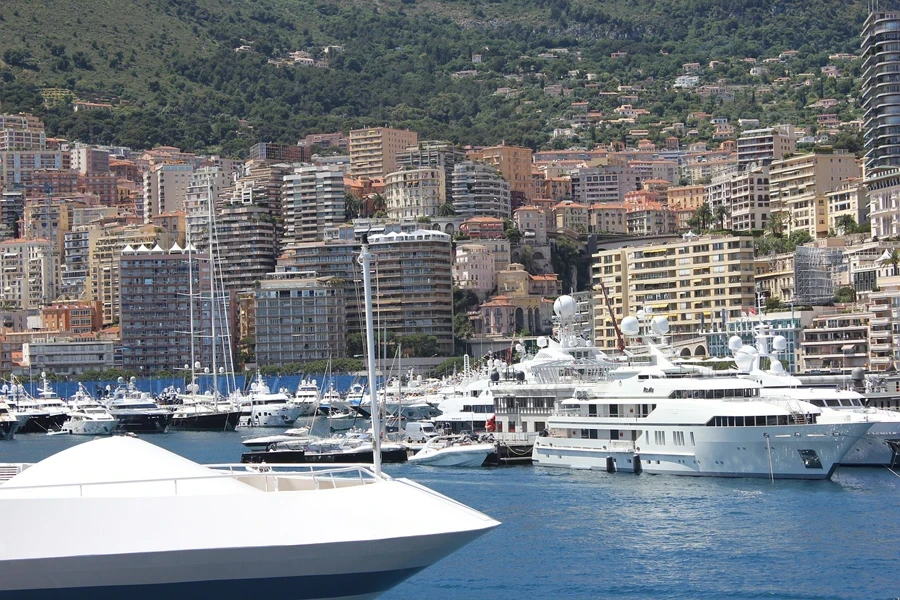
Advanced hull designs
Enhancements in the structure of boat hulls enhance the effectiveness and efficiency of yachts at sea. The latest innovations minimise resistance while enhancing steadiness to boost speed and save fuel. For example, the newest models integrate elements such as hull forms and state-of-the-art materials to provide superior performance across marine conditions. As reported by Yachting Magazine, yachts such as the Tecnomar “This Is It” feature aerodynamic hull designs alongside interiors that symbolize a harmonious fusion of performance and luxury.
Predictive maintenance
Predictive maintenance is now a feature in modern yachts as it utilizes sophisticated analytics and sensors to monitor the status of different yacht parts in advance. According to Yachting World magazine reports, such systems can anticipate breakdowns before they happen, permitting timely repairs and lessening downtime. These innovative technologies boost the dependability and security of yachts by guaranteeing that all mechanisms work at their capacity, prolonging the vessel’s lifespan, and decreasing unforeseen fixes.
The advancements in systems, eco-friendly materials, innovative hull structures, and proactive upkeep are shaping the direction of yacht design and bringing improved efficiency, environmental friendliness, and user satisfaction into focus.
Top sellers driving market trends
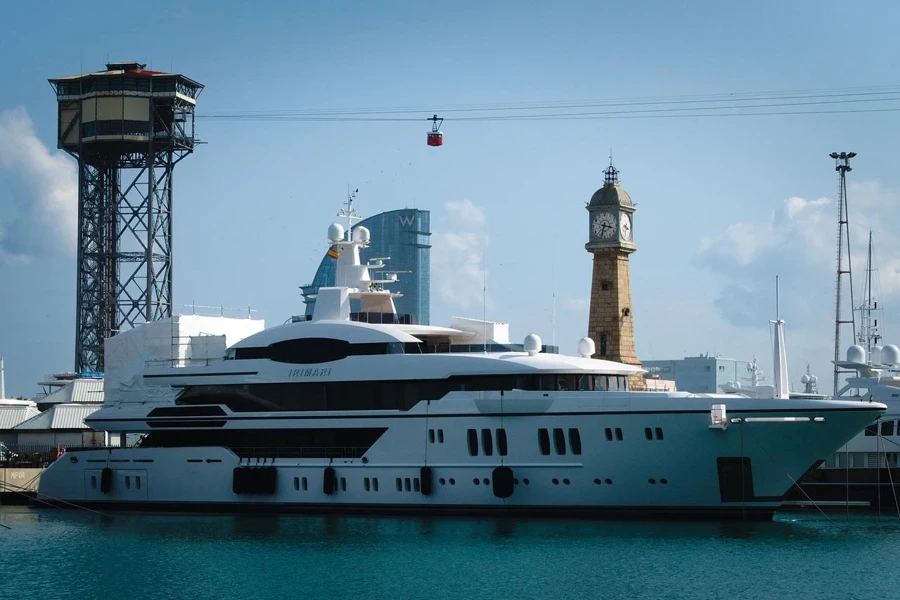
Prominent yacht makers like Azimut Benetti and Ferretti Group hold a position alongside Sunseeker International by introducing innovative designs and premium product features. These companies rely on their reaching distribution channels and esteemed brand images to significantly impact current market trends. Specialized builders such as Lürssen and Feadship focus primarily on catering to individuals with immense wealth, emphasizing expert craftsmanship and providing exclusive experiences. EconMarketResearch indicates that these industry giants are leading the way in defining standards for luxury, technology, and sustainability within the yacht sector, influencing consumer preferences, and shaping the direction of yachting.
Leading yacht manufacturers
In the yacht industry, a few prominent companies are renowned for their creative designs, top-notch craftsmanship, and wide offerings. Azimut Benetti, Ferretti Group, and Sunseeker International stand out as players in the market. They rely on their brand names and expansive distribution channels to stay ahead of the competition. On the other hand, custom yacht builders such as Lürssen and Feadship target the super-wealthy by producing tailored luxury vessels that highlight exceptional skill and exclusivity. According to EconMarketResearch reports and analysis, these companies lead the market by innovating and prioritizing luxury items while establishing benchmarks for design and technology within their industry sectors.
Popular models
In the past few years, we’ve witnessed the introduction of multiple sought-after yacht designs that have caught the eye of enthusiasts and experts. Take, for example, the M/Y Anjelif by Columbus Yachts—a custom 50-meter yacht equipped with diesel-electric engines to meet the growing interest in eco-friendliness and contemporary aesthetics. The Ferretti Groups Riva 88′ Folgore model also makes waves, seamlessly blending top-tier performance with styling. According to a report by GrowthMarketReports, the rising popularity of these models underscores the industry’s commitment to incorporating cutting-edge technologies and premium features to cater to the changing tastes of consumers.
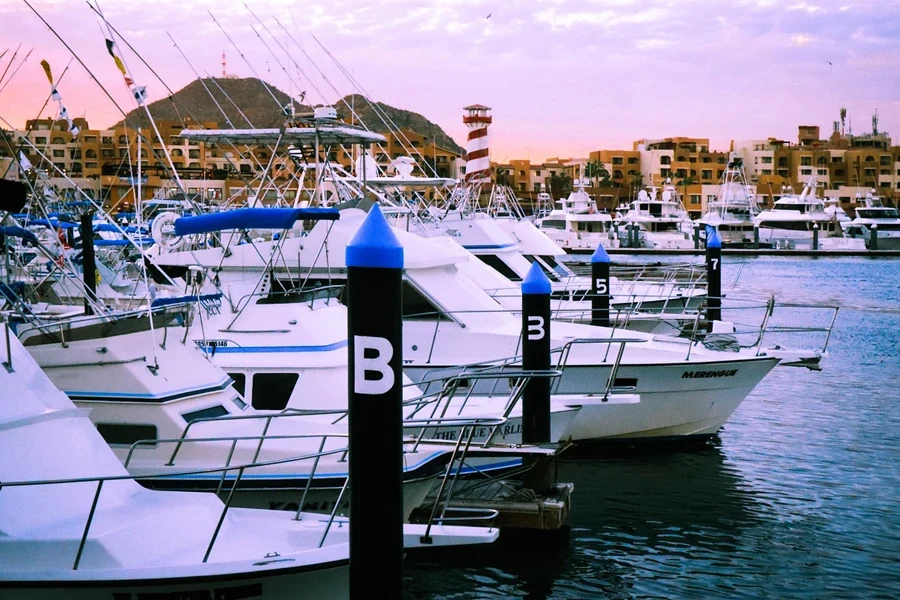
Consumer Preferences
The trend among consumers in the yacht industry is moving towards customization options that cater to tastes and needs while focusing more ontainability and integrating technology into the vessels themselves. Buyers are now looking for yachts tailored to their preferences with interior designs and layouts instead of mass-produced models. Reports from GM Insights highlight a rising interest in eco yachts equipped with hybrid or electric propulsion systems as environmentally aware customers seek ways to lessen their impact by reducing carbon emissions. Furthermore, cutting-edge intelligent systems that improve convenience, safety, and leisure activities while traveling by sea are now commonplacely fueled by the quest for opulent journeys.
In the yacht industry scene of sellers lie vessels that skillfully blend opulence with creativity and eco-friendliness to cater to the discerned preferences and lofty demands of modern-day buyers. They secure their standings amidst fierce competition by anticipating shifts and trends and constantly enhancing their product range.
Conclusion
The yacht industry is experiencing growth due to advancements in technology and changes in consumer preferences towards sustainability and luxury experiences offered by top players such as Azimut Benetti and Ferretti Group with their innovative and environmentally friendly yacht designs that set new standards in the market landscape by incorporating smart systems and hybrid propulsion technologies for a more sophisticated and eco-conscious customer base. In the coming years, the continuous advancements in yacht design and features assure an exciting and flexible market constantly catering to the refined needs of yacht lovers and experts globally.
